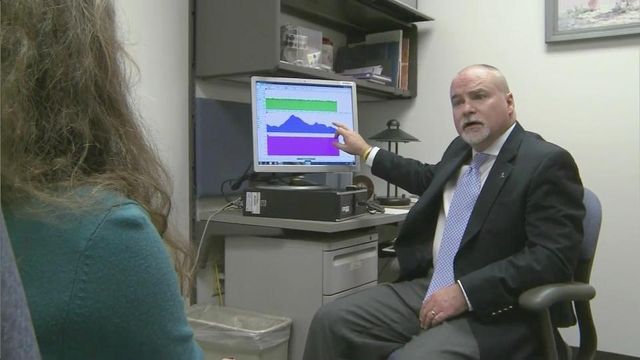Study shows behavioral therapy and medicine helps with child migraines
Researchers at Cincinnati Children's Hospital have determined that behavioral therapy along with medicine can help children cope with migraines.
Posted — UpdatedResearchers at Cincinnati Children’s Hospital have determined that behavioral therapy along with medicine can help children cope with migraines.
One out of 10 school-age children experience migraines and many, like Ann Mondi, experience 15 or more headache days a month. Ann, whose migraines started in the eighth grade and worsened in high school, participated in the study, which was published in the Journal of the American Medical Association.
"I missed school because of it and I missed practices for plays and sports because the migraine was so bad that I didn't think I could do any physical activity," she said.
Researchers studied 135 school-aged children with an average of 21 headache days a month. Each participant received Amitriptyline, a standard migraine medication, daily for a school semester. Half of the participants also received weekly behavioral therapy treatments.
"It is really about coping in your day–to-day life and the fact that you can actually have some control over turning the volume down on your pain by the things that you do,” said Scott W. Powers, director of the Office for Clinical and Translational Research at Cincinnati Children’s Hospital.
Behavioral techniques like bio-feedback, relaxation and deep breathing exercises helped Ann realize how tension affected her body.
"It kind of made me aware of ‘I'm starting to get stressed’ which starts to bring on the migraines," she said.
The study determined that medicine and cognitive behavioral therapy helped participants reduce their number of headache days by half or more. The study authors noted that the medication used was safe and well-tolerated by participants.
"They were back to functioning day to day at a pretty normal level and managing the headaches they still had in a way that didn't lead to disability," Powers said.
The study has given Ann the ability to manage her migraines.
• Credits
Copyright 2024 by Capitol Broadcasting Company. All rights reserved. This material may not be published, broadcast, rewritten or redistributed.





